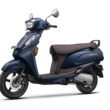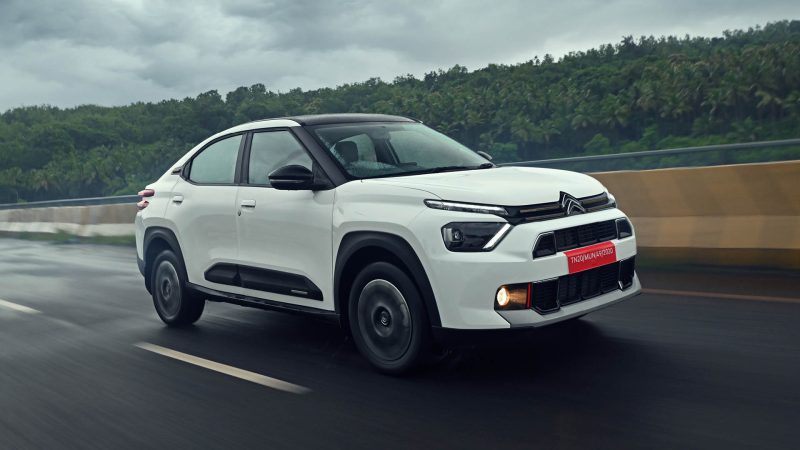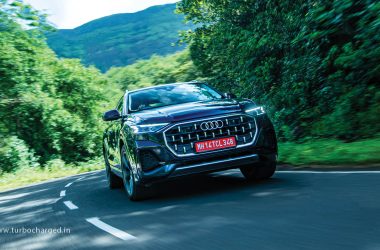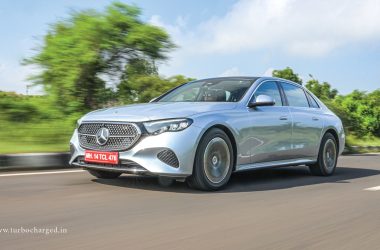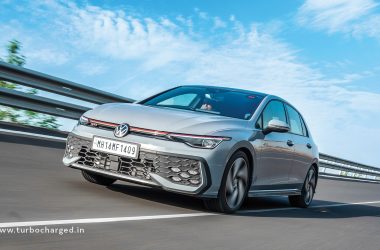We’re seeing a sudden influx of coupe-styled cars. While most of them are crossovers pegged as SUVs, clearly, the days of boxy (and thus macho!) SUVs are behind us. That said, we’re also glad to see car makers try to experiment with body styles and focus on designs that are more aspirational. This, while still catering to the demand for SUVs, like the Citroen Basalt here! The Basalt is the French car maker’s fifth offering in India, in less than four years, besides being the fourth from the C3 family. The stakes are certainly high for Citroen, especially since it hasn’t been able to make much of a mark with its other cars. That said, the Basalt looks promising, especially with its design.
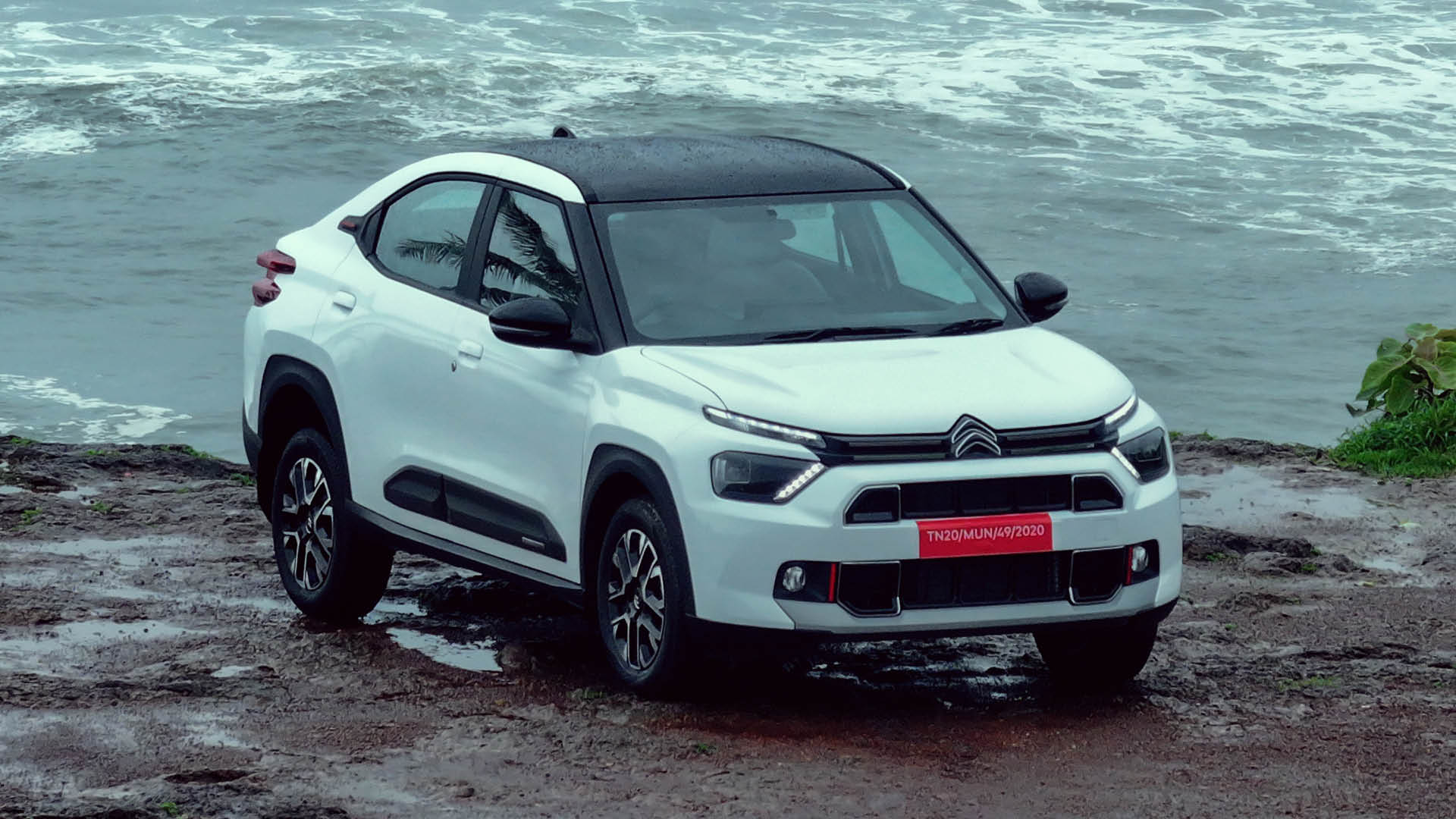
An SUV coupe from Citroen is not much of a surprise though as it has been selling coupe SUVs in the international market, including products like the CX, C4 and e-C4. At first glance though, when viewed head on, it’s easy to mistake the Basalt for the C3 Aircross, given the identical front end. This is good in a way though as it will help in offering a sense of familiarity to buyers. The double chevron logo of course looks unique and very eye-catching, and helps the Basalt stand out as a Citroen instantly. The Basalt shares its front half with its siblings, but beyond the B-pillar is where things start looking different. The rear half is where the sloping roofline makes the Basalt look different, and a lot more appealing than any of its CMP platform-based siblings.
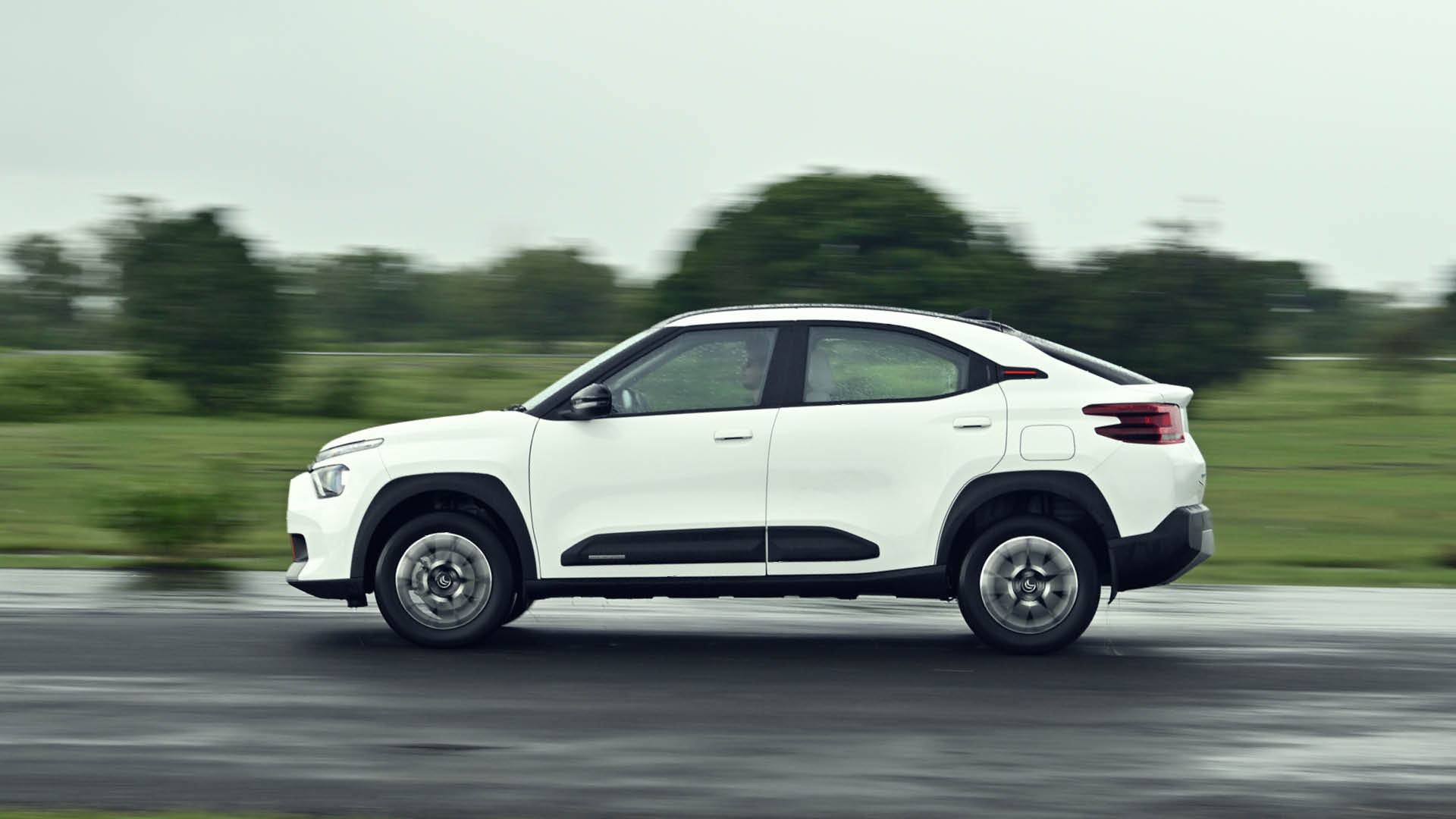
The roofline ends in a short, flat boot, besides which there’s acres of black cladding on all sides to give it a rugged appearance. Unlike the C3 Aircross that runs on 17-inch wheels the Basalt runs on 16-inch wheels, which I found a little surprising. Given its sportier design the Basalt would have looked better with larger wheels, though I have to say, the wheels here look very good. The unique tail lamp design adds to the Basalt’s distinctiveness as the lamps also extend a bit to the sides, helping accentuate its width further. Overall, this a very good looking crossover and no less than a breath of fresh air. That said, the white hue of our test car looked dull, especially given the gloomy weather, but the Basalt looks very appealing in brighter colours.
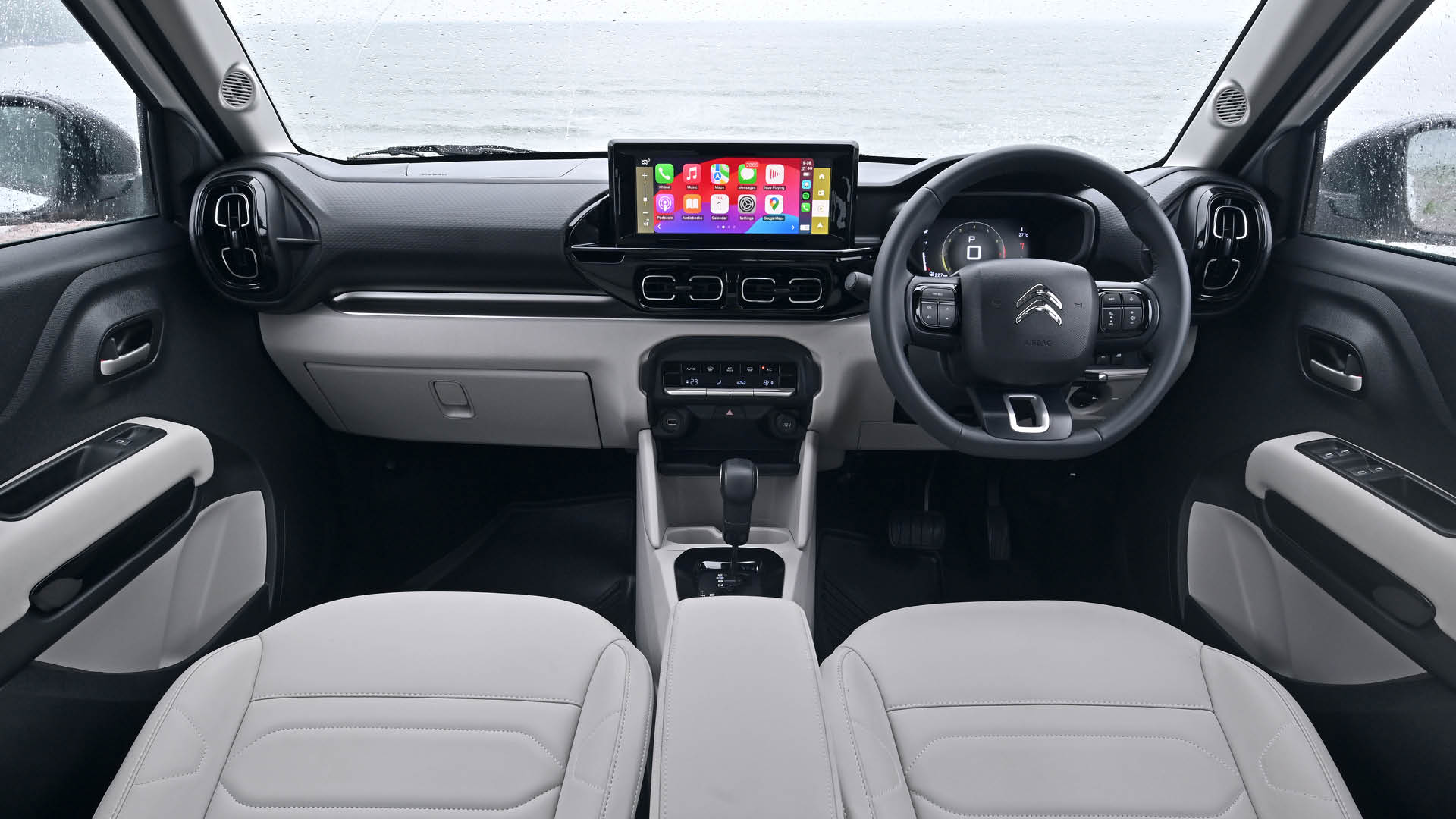
Interiors look familiar, especially the 10.25-inch touchscreen and the air-conditioning vents from the C3 Aircross. Fit-finish levels are good and while quality of plastics does feel better, overall, the cabin could do with a more heightened sense of premiumness. That said, the champagne highlights and dashboard’s dual-tone paint scheme, textures and soft touch panels help matters. Finally, Citroen has also added automatic climate control, a feature we sorely missed on the C3 Aircross. The control panel sits below the central air-conditioning vents and below it is a cubby hole and wireless charging pad, with a rubber base to hold phones in place. There’s still just a single USB port upfront though and a Type-A at that, not Type-C, along with a 12V socket. Rear occupants get two USB ports as well, along with conventionally positioned, floor-mounted rear AC vents.
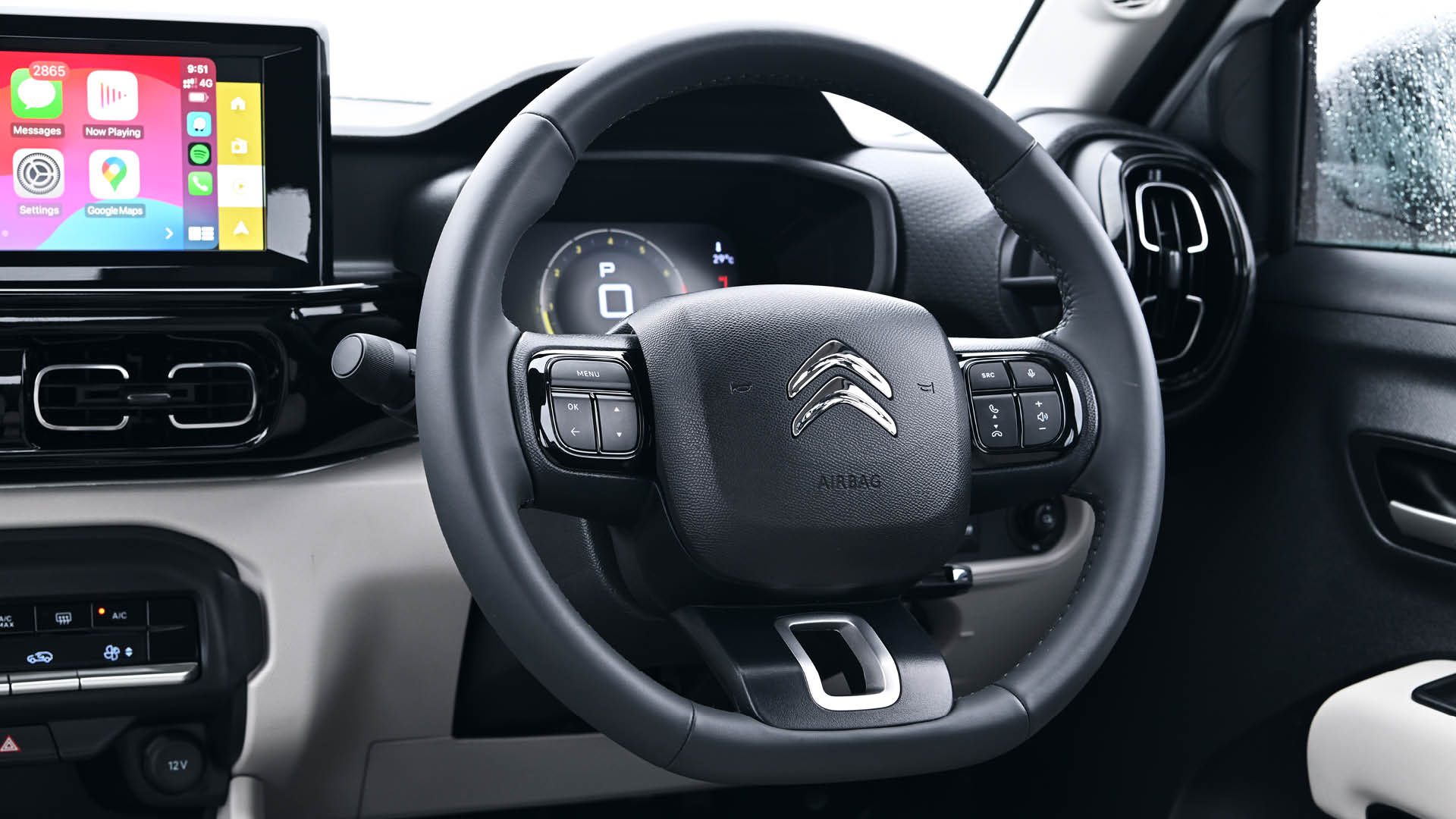
Rear window switches have (thankfully!) been moved to the doors from the centre console between the front seats, besides which front occupants now get adjustable arm rests. As is the case with Citroen’s cars, all seats are very comfortable and supportive. The backrest for the rear bench is also positioned at a very good angle, seat cushioning is excellent and not only are the rear headrests adjustable here, they’re also concave-shaped to hold your head in place in case you doze off on the go. The Basalt’s party trick for rear occupants though is the adjustable thigh support extension that can be raised and locked in four steps for comfort. Oddly, the manual version misses this feature, though its rear seat squab is very comfortable, even without it.
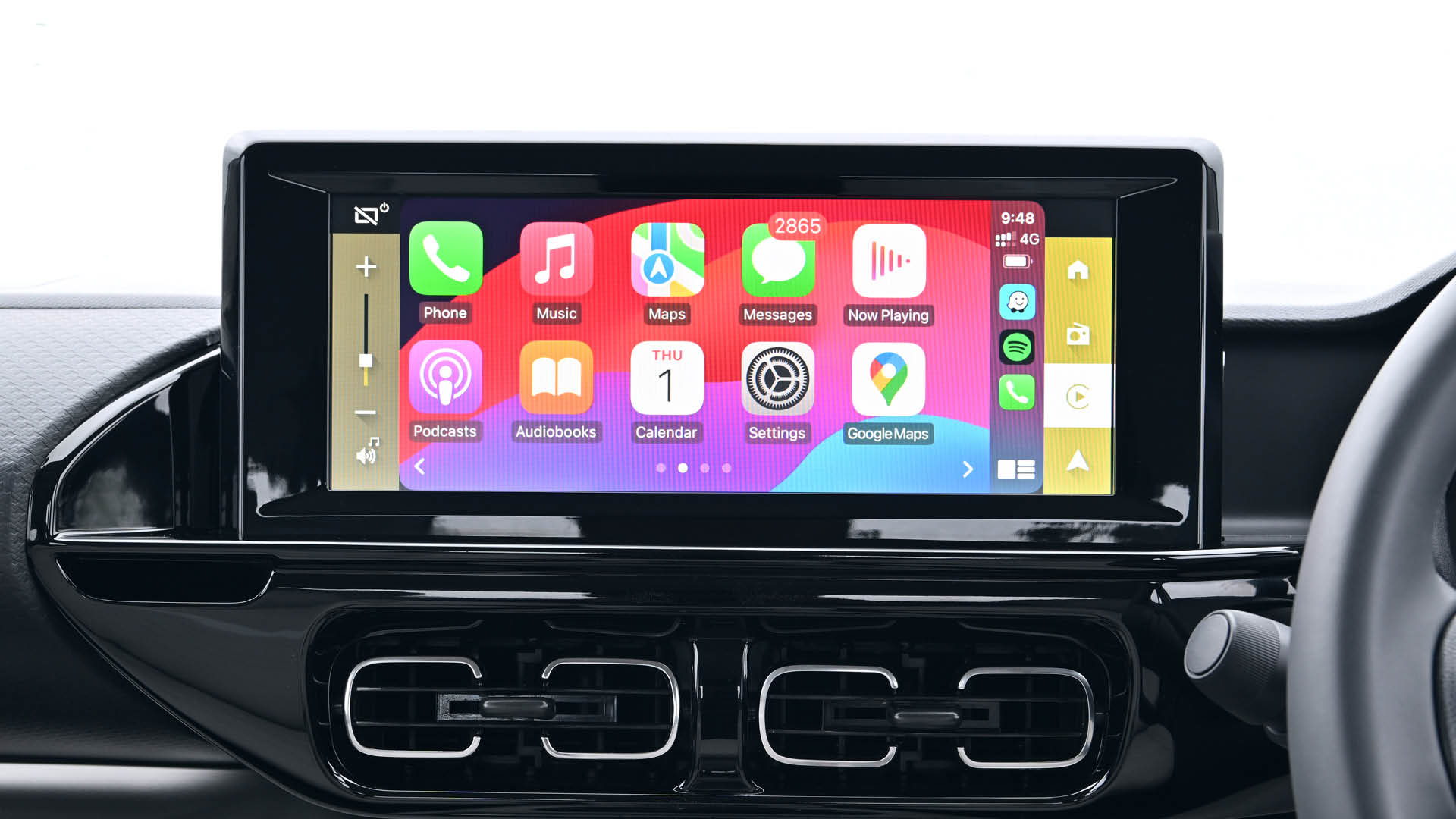
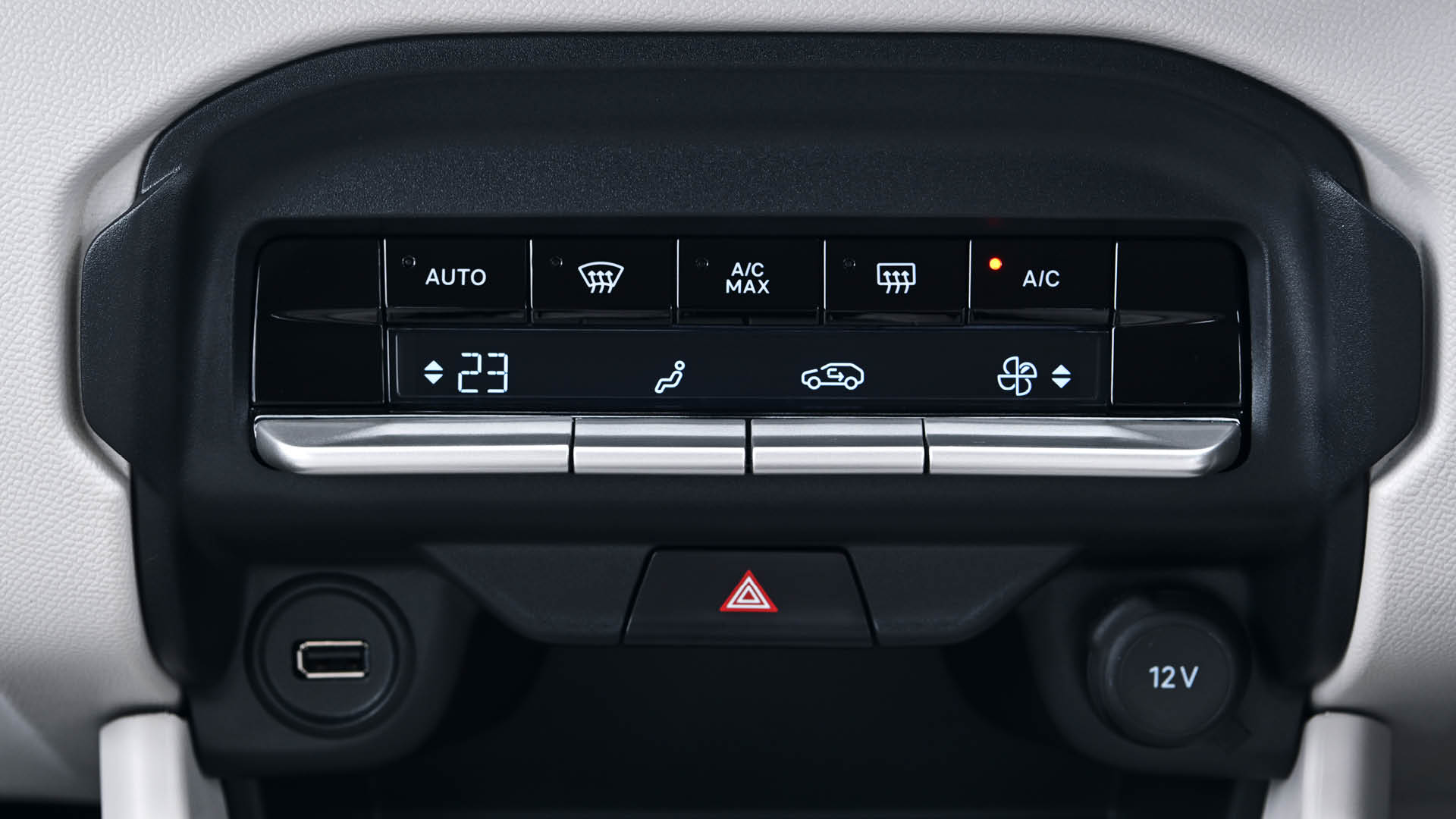
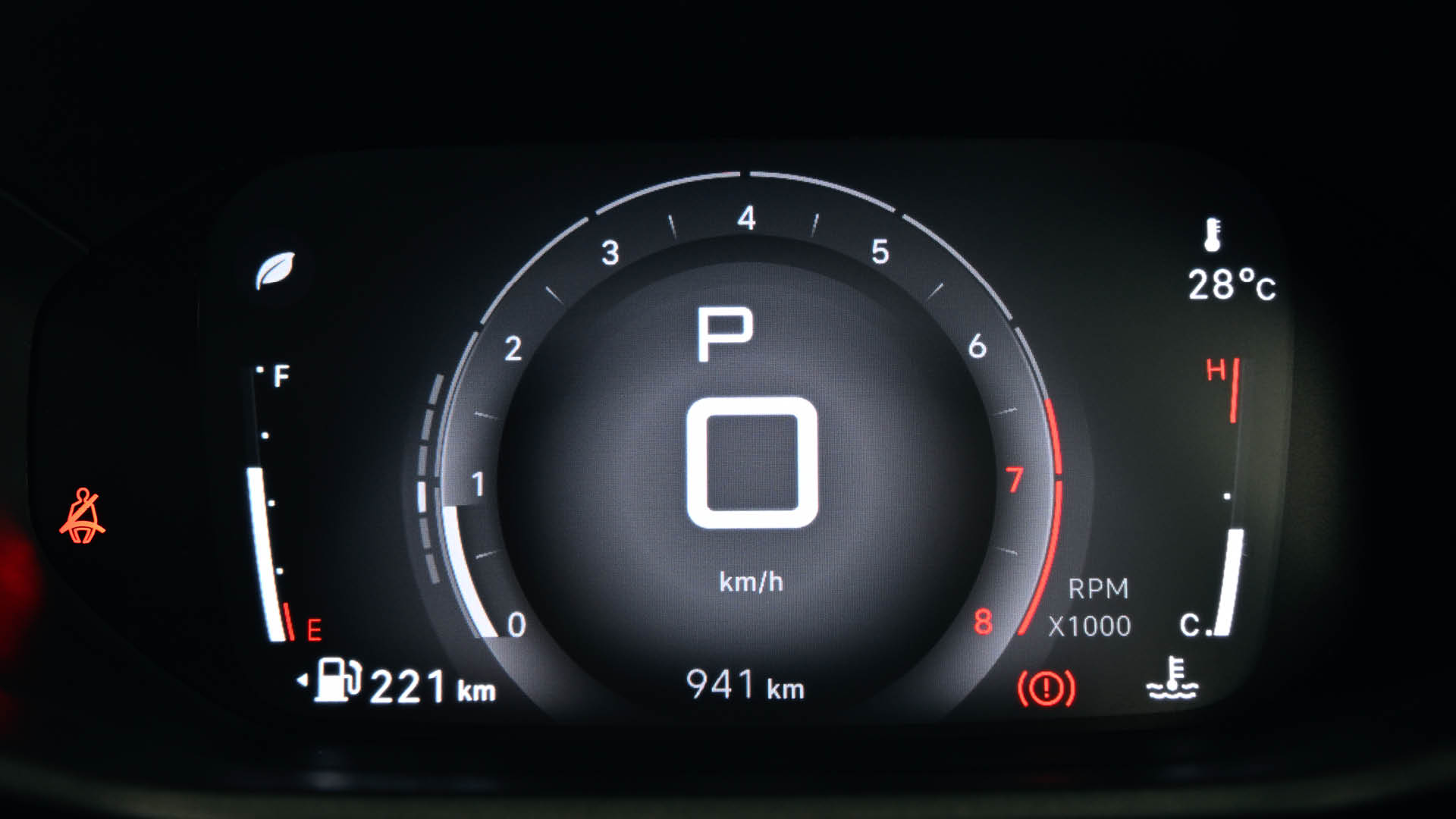
A slightly irritating bit is the fact that sans any load sensors, rear seatbelt reminders buzz when you start driving, even without occupants. The cabin is very spacious though and the Basalt certainly impresses as a spacious vehicle, especially courtesy its 2,651mm wheelbase and overall length of 4,352mm. At 470 litres, boot volume is excellent too and with the entire tailgate including the rear windscreen lifting up, the Basalt’s boot looks cavernous.
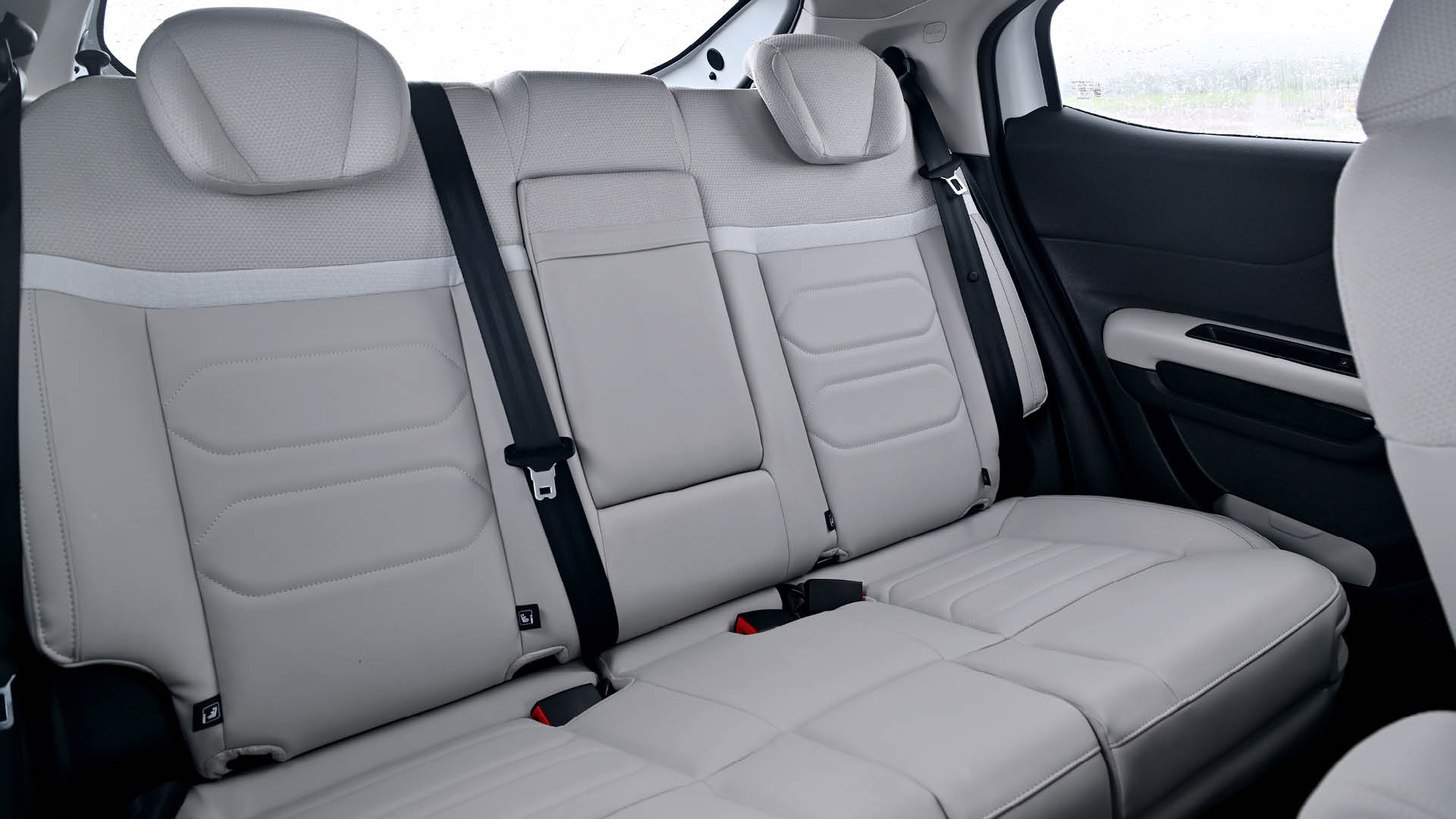
We only drove the automatic version powered by the same 1.2-litre, three-cylinder turbocharged petrol engine as the C3 Aircross producing 110PS. Peak torque produced is 190Nm in the manual version (uses a 6-speed gearbox) and 205Nm in the automatic version (uses a 6-speed torque converter). The eager power delivery, crisp throttle responses and minimal turbo lag ensure performance is brisk and there’s a strong surge from low revs. The torque converter compliments engine performance by way of quick gearshifts, though I did miss having paddle shifters. The engine feels smooth even at highway speeds, but while it does sound a little stressed at high revs, that isn’t the case in reality as the even torque spread ensures there’s adequate shove even at the top. Overall, the powertrain impresses and feels adequate and while performance is good, it feels more in line with the demands of regular buyers, not enthusiasts.
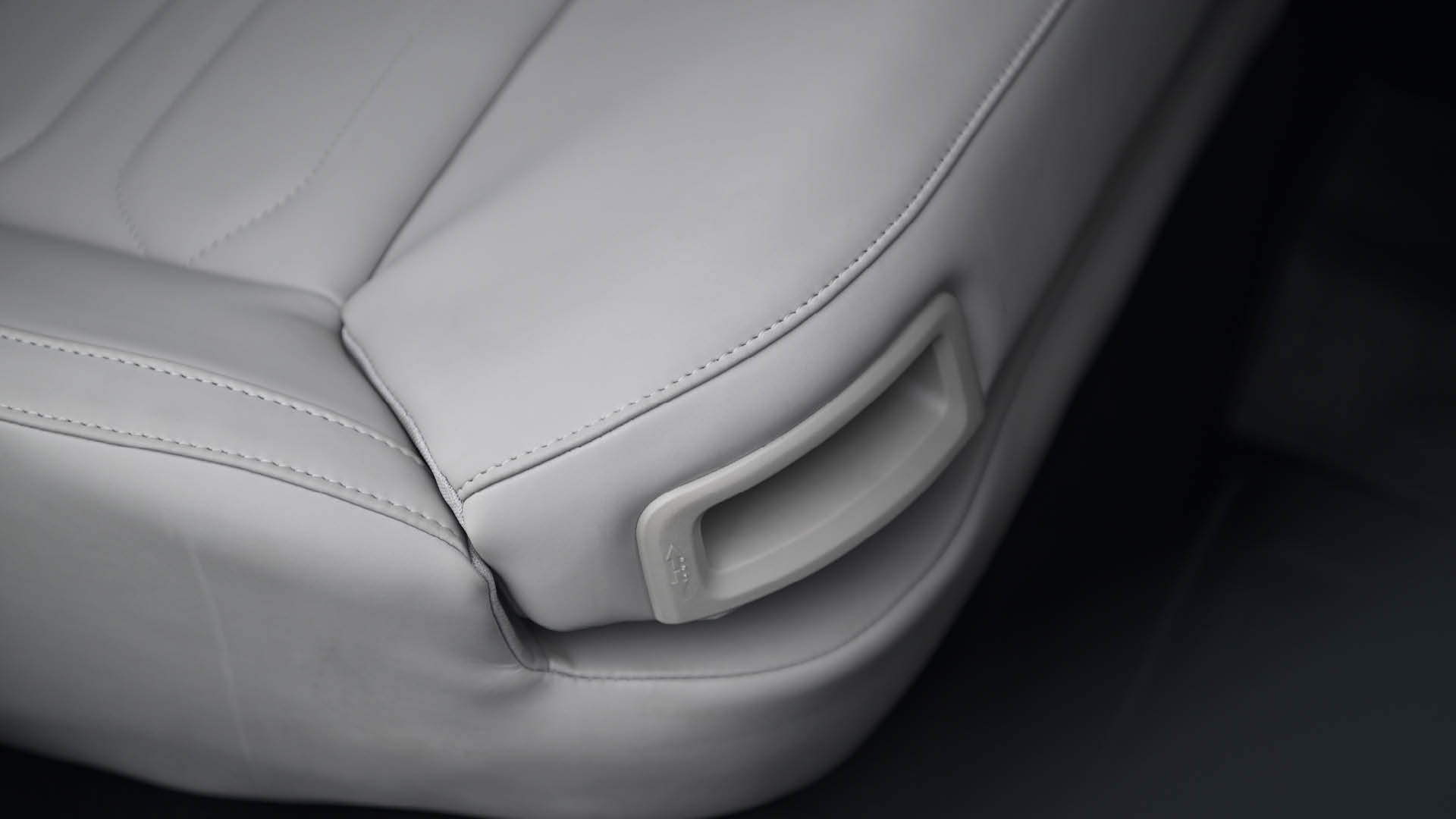
The Basalt’s dynamics will impress petrolheads though, as we’ve also seen with other Citroen cars. There’s a likeable feel to the steering’s feedback and responsiveness, while the suspension ensures body roll is well-controlled around corners. What truly shines though, like every other Citroen product, is the impeccable ride quality. Even large potholes are soaked up with aplomb and you barely feel the small ones, besides which highway comfort is excellent. In fact I dare say, the Basalt’s ride quality is the best, as far as SUVs priced under Rs 20 lakh are concerned. Citroen also states the Basalt comes equipped with over 40 safety features, including six airbags as standard, along with ESP and hill-hold.
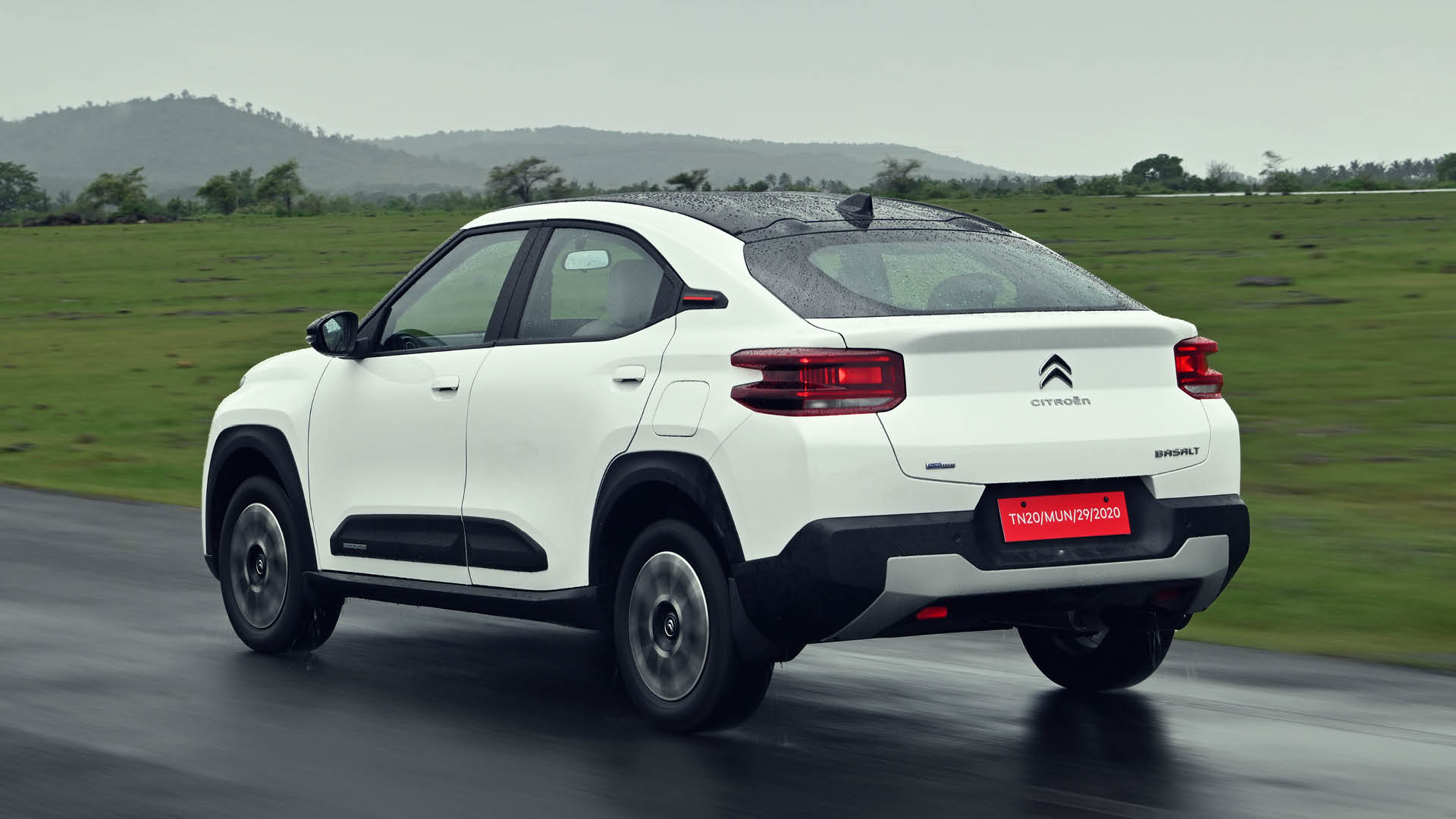
Overall, the Basalt is the most impressive of the C3 family. A lot of it has to do with its design and the enhanced feature list. It also impresses immensely with its size, space and comfort, but it’s the Basalt’s introductory price that is a shocker. While prices for the entire line-up are yet to be announced, the Basalt is priced from Rs 7.99 lakh ex-showroom onwards, helping it undercut not only every other midsize SUV, but compact SUVs sitting a segment below it too! So all said and done, the Basalt certainly has what it takes to be a segment disruptor for Citroen.


